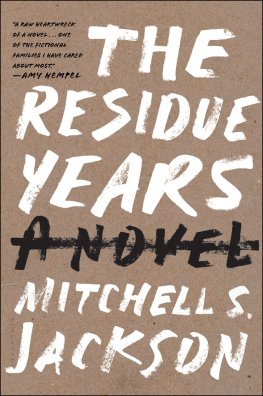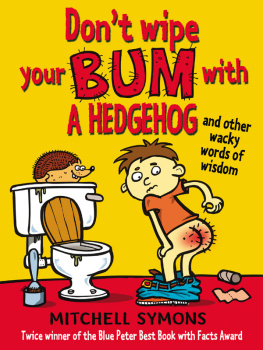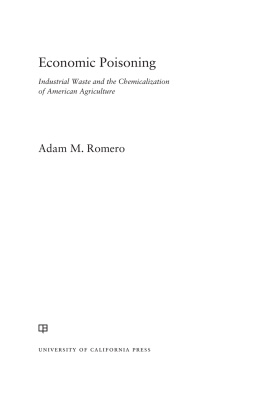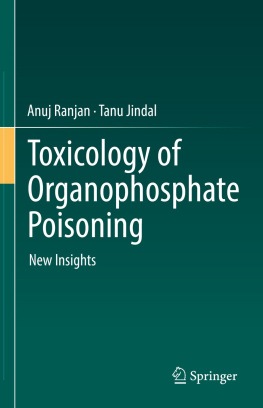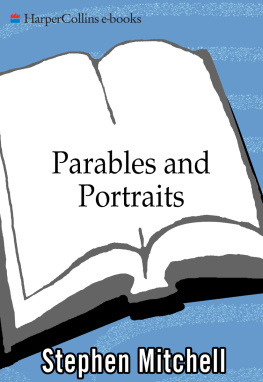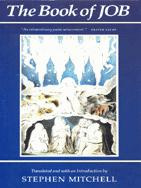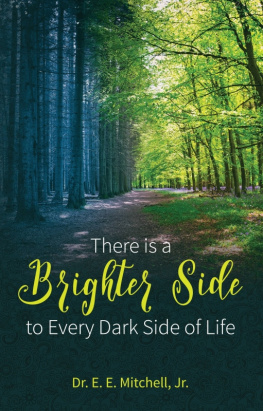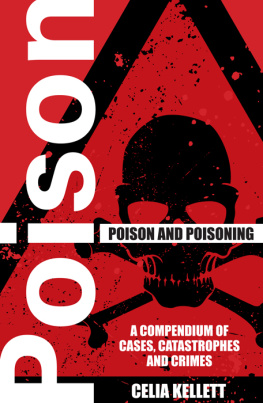Jon Mitchell - Poisoning the Pacific
Here you can read online Jon Mitchell - Poisoning the Pacific full text of the book (entire story) in english for free. Download pdf and epub, get meaning, cover and reviews about this ebook. year: 2020, publisher: Rowman & Littlefield Publishers, genre: Politics. Description of the work, (preface) as well as reviews are available. Best literature library LitArk.com created for fans of good reading and offers a wide selection of genres:
Romance novel
Science fiction
Adventure
Detective
Science
History
Home and family
Prose
Art
Politics
Computer
Non-fiction
Religion
Business
Children
Humor
Choose a favorite category and find really read worthwhile books. Enjoy immersion in the world of imagination, feel the emotions of the characters or learn something new for yourself, make an fascinating discovery.

- Book:Poisoning the Pacific
- Author:
- Publisher:Rowman & Littlefield Publishers
- Genre:
- Year:2020
- Rating:4 / 5
- Favourites:Add to favourites
- Your mark:
- 80
- 1
- 2
- 3
- 4
- 5
Poisoning the Pacific: summary, description and annotation
We offer to read an annotation, description, summary or preface (depends on what the author of the book "Poisoning the Pacific" wrote himself). If you haven't found the necessary information about the book — write in the comments, we will try to find it.
Poisoning the Pacific — read online for free the complete book (whole text) full work
Below is the text of the book, divided by pages. System saving the place of the last page read, allows you to conveniently read the book "Poisoning the Pacific" online for free, without having to search again every time where you left off. Put a bookmark, and you can go to the page where you finished reading at any time.
Font size:
Interval:
Bookmark:
Jon Mitchell is an investigative journalist with the Okinawa Times ;whose scoops frequently top the TV news and newspapers in Japan. In 2015, he was awarded the Foreign Correspondents Club of Japans Freedom of the Press Lifetime Achievement Award for his research on human rights issues on Okinawa. His work has been featured in reports for US Congress and the Japanese parliament; it has also helped US veterans exposed to contamination in Japan win compensation from the Department of Veterans Affairs. US authoritiesincluding the State Department and the Department of Defensehave repeatedly attempted to block Mitchells work, prompting condemnation from international press freedom groups.
Defoliated Island, a TV documentary about Mitchells investigations into the use of Agent Orange in Japan, was winner of a 2012 award for excellence from the Association of Commercial Broadcasters, a first for a foreign journalist. He is author of two Japanese books about military contamination, Tsuiseki: Okinawa no Karehazai (Agent Orange on Okinawa) (2014) and Tsuiseki: Nichibei Chiikyoutei to Kichi Kougai (Military Contamination and the JapanUnited States Status of Forces Agreement) (2018). In 2019, Okinawa International University unveiled the Jon Mitchell Collection, a 5,500-page database of reports obtained via the US Freedom of Information Act (FOIA) cataloging the environmental impact of military operations in Japan, CIA attempts to manipulate public opinion, and United States Marine Corps lectures denigrating Okinawans. Mitchell often holds seminars to teach Japanese journalists, academics, and nongovernmental organizations (NGOs) how to use the FOIA.
Mitchell is an Asia-Pacific Journal associate and visiting researcher at the International Peace Research Institute of Meiji Gakuin University, Tokyo.
In the summer of 2010, I traveled to the Yanbaru jungles of Northern Okinawa to report for the Japan Times about the impact of military operations on the islands environment. For the first time, I heard how US troops there in the 1960s had sprayed Agent Orange to clear vegetation and built mock Vietnamese villages to stage war games. Residents described early deaths among base workers, worried their land was still contaminated, and feared for their childrens healthbut the Japanese government had done nothing to help. I promised them Id investigate, so after returning to Tokyo, I started reaching out to US service members who had served on Okinawa during the Vietnam War. These veterans recalled offloading orange-banded barrels of defoliants and spraying them throughout the island; many were ill and their children were sick, and the VA was ignoring their plight.
Hearing these parallel experiences from Okinawans and Americanstheir illnesses, fears for the next generation, and abandonment by the authoritiestriggered the start of this investigation into military contamination throughout the Pacific region. During my decade-long journey Ive been guided by hundreds of people without whose support, advice, and show of faith this book would not exist.
On Okinawa, I offer my heartfelt thanks to Ashimine Gentatsu and Yukine and Isa Ikuko for their knowledge of the Yanbaru; Professor Sato Manabu of Okinawa International University for his insights into USJapan relations; Kuniyoshi Nagahiro for his tales of journalism in the prereversion era; interpreter Oshiro Nariko for her ability to put into words what I wasnt even sure I wanted to say; Iha Yoshiyasu for his earlyand ongoingsupport; Yoshikawa Hideki, Tobaru Sunao, Robert Avery, Daniel Broudy, Peter Simpson, and the Nakamura-Hubers for their kindness; Kawamura Masami for navigating Japans freedom of information laws; Ishikawa Bunyo for his lessons on how the Vietnam War traumatized all sides; Kinjo Minoru for his hospitality (and awamori); Professor Sakurai Kunitoshi for his explanation of KoreaUS environmental agreements; Ina Takahiro and Tamura Susumu for their descriptions of work on the bases; Ampo Yukiko and Jahana Etsuko at the Nuchi du Takara House, Iejima Island; and Uchimura Chihiro at Fukutsukan, Naha City. I would especially like to thank Ginoza Eikoto list the number of ways you have inspired me would fill a shelf of books; you have taught me the true meaning of nuchi du takara.
Since 2010, hundreds of active and retired service members have shared their experiences and advice with me both on and off the record. To those unnamable insiders who risked their careers, compensation, and liberty, you know who you are and you have my heartfelt gratitude. To the families who opened their homes to me and my TV crew in 2012Larry and Shirley Carlson, John and Angela Santiago, Don and Mary Schneider, Jimmy and Ray SpencerI owe a massive thanks, particularly Joe Sipala, who showed me most what it means to love your country and fear your government. John Olin and Michelle Gatz, too, conducted extensive research into defoliant use on Okinawa. At the same time, I send an apology to those for whom this book comes too late: L. E.; Larry Gray; Glen Herman; Jerry Mohler; Scott Parton; and Caethe Goetz, who once told me, There is more power in a multiple of voices than one lone one. Rest in power, and I vow to keep fighting for justice on your behalf.
More than anywhere else in the world the people of Vietnam understand the dangers of military contamination. During my visits there, I was warmly welcomed by all those seeking environmental justice: Nguyen Thi Hien and Phan Thanh Tien of the Da Nang Association of Victims of Agent Orange/Dioxin; Major General Tran Ngoc Tho; and Dr. Nguyen Thi Ngoc Phuong and the staff at Tu Du Hospital, Ho Chi Minh City. Your furious compassion kept me writing, and I hope this book contributes to global understanding of how dioxin impacts your nations past, present, and future. In addition, I would like to thank Dr. Wayne Dwernychuk for his invaluable input on Vietnams hot spots and Heather Bowser for sharing her familys hard-learned lessons about dioxin.
On Guam, I am grateful for everyone who took the time to meet with me and answer my questions: senators Sabina Perez and Therese Terlaje, Attorney General Leevin Camacho, Robert Celestial, the staff of Guam Environmental Protection Agency, and members of the Joint Region Marianas. Ralph Stantons research on the use of defoliants on Guam was also invaluable.
At Rowman & Littlefield, Id like to thank those who have worked hard to put this book into print, including Susan McEachern, Katelyn Turner, Alden Perkins, and Nicole Carty. The editor of this Asia/Pacific/Perspectives series, Mark Selden, has been my mentor at the Asia-Pacific Journal for the past decade, and I thank him for his constant guidance and friendship. Without Robert Jacksons search of the National Archives, this book would have no cover photo. Thank you.
Near the sea in Naha City stands a memorial to the journalists who died in the Battle of Okinawa, and today many local reporters make an annual pilgrimage there to pledge not to pick up their pens again in the glorification of war. Such consciousness among Okinawan reporters anchors their commitment to fearless, public service journalism. At the Okinawa Times, I offer a huge thanks to my colleagues, Yonamine Kazue, Yonahara Yoshihiko, Chinen Kiyoharu, Maeda Takayuki, and Abe Takashi, and at Ryukyu Shimpo, Shimabukuro Ryota. Most importantly, I offer my gratitude to Ryukyu Asahi Housou TV director Shimabukuro Natsuko for her intelligence, compassion, and eye for a great story; I look forward to working with you for many more years to come.
Also, Id like to thank the editors of my Japanese books about military contamination, Yamamoto Kunihiko at Koubunken and Nakamoto Naoko at Iwanami Shoten; both publishers remain rare beacons of hope during these dark days.
Font size:
Interval:
Bookmark:
Similar books «Poisoning the Pacific»
Look at similar books to Poisoning the Pacific. We have selected literature similar in name and meaning in the hope of providing readers with more options to find new, interesting, not yet read works.
Discussion, reviews of the book Poisoning the Pacific and just readers' own opinions. Leave your comments, write what you think about the work, its meaning or the main characters. Specify what exactly you liked and what you didn't like, and why you think so.

